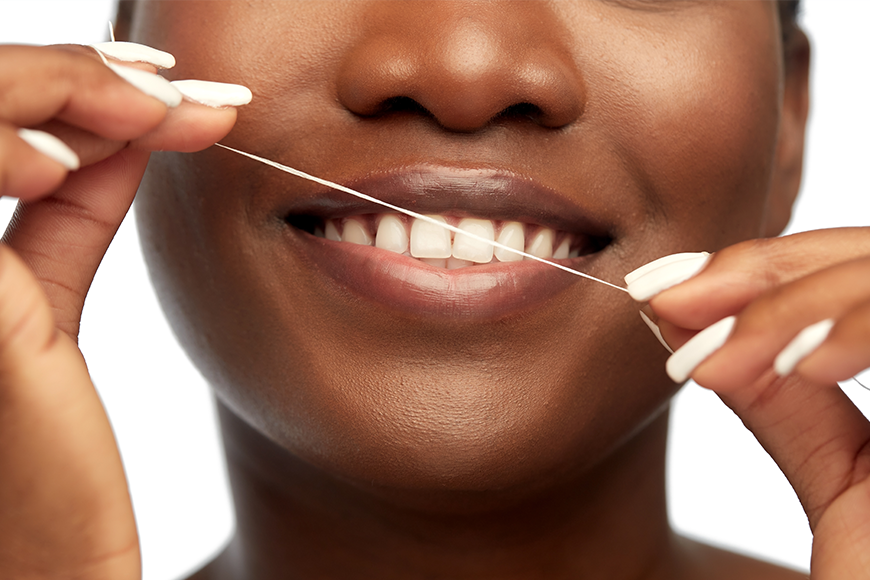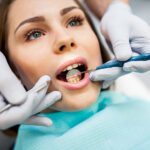We’ve all experienced the post-dental cleaning feeling: that odd sensitivity, sometimes a bit of gum soreness, and perhaps a strange taste in your mouth. But what exactly is happening? Are these normal side effects, or is something more sinister at play?
In this comprehensive guide, we’ll delve into the potential side effects of teeth cleaning, demystify the science behind them, and offer practical tips to minimize discomfort. We’ll also explore how to recognize signs of more serious issues and when to seek professional advice.
Common Side Effects of Teeth Cleaning
- Sensitivity: The removal of plaque and tartar during a cleaning can expose the underlying dentin, a sensitive layer beneath the enamel. This can lead to increased sensitivity to hot, cold, sweet, or acidic substances. Sensitivity is usually temporary and subsides within a few days to a few weeks.
- Gum Soreness: The scaling process can sometimes irritate the gums, causing them to become sore or bleed. This is especially common if you have gum disease or if your gums are already inflamed. Gum soreness and bleeding typically resolve within a few days.
- Temporary Discomfort: Deep cleaning procedures, such as scaling and root planing, can cause temporary discomfort or jaw soreness. This discomfort is usually mild and short-lived, typically lasting only a few hours or days.
Less Common Side Effects
While rare, some individuals may experience more severe side effects, such as:
- Nerve Damage: In rare instances, aggressive scaling or cleaning can inadvertently damage the nerves within the tooth. This can occur if the dentist applies excessive force or if the root surface is damaged. Nerve damage can lead to persistent pain, sensitivity, and discomfort, especially when biting down or consuming hot or cold foods.
- Infection: While uncommon, there’s a slight risk of infection after dental procedures, particularly if proper oral hygiene isn’t maintained. Bacteria can enter the bloodstream through open wounds or inflamed gum tissue. Signs of infection include severe pain, swelling, redness, and pus. Fever may also occur.
Tips to Minimize Discomfort
- Gentle Brushing and Flossing: Use a soft-bristled toothbrush and gentle, circular motions to avoid further irritating your gums. Flossing can help remove plaque and food particles, but be gentle to prevent gum irritation.
- Sensitivity Toothpaste: Using a toothpaste formulated for sensitive teeth can help reduce discomfort. Over-the-counter pain relievers like ibuprofen or acetaminophen can help alleviate mild pain and inflammation.
- Avoid Irritating Foods: Hot and cold foods and drinks can trigger sensitivity in newly cleaned teeth. Stick to lukewarm beverages and room-temperature foods. Acidic substances can erode tooth enamel, especially when teeth are sensitive. Avoid citrus fruits (oranges, lemons, grapefruits), acidic juices (cranberry, pineapple), and acidic wines. Spicy foods can irritate the gums and mouth, potentially leading to discomfort.
- Rinse with Salt Water: Salt water has natural antiseptic properties that can help kill bacteria and reduce inflammation. It can soothe irritated gums and alleviate any minor discomfort. Mix a teaspoon of salt in a glass of warm water. Swish the solution around your mouth for 30 seconds, then spit it out. Repeat 2-3 times a day.
- Stay Hydrated: Drinking plenty of water helps to flush out bacteria and food particles that can contribute to inflammation. Adequate hydration supports the body’s natural healing processes.
Madison Dentistry & Implant Center: Your Trusted Dental Partner
If you experience persistent or severe pain, swelling, or bleeding, it’s essential to contact your dentist promptly. These could be signs of a more serious issue, such as an infection or nerve damage.
Conclusion
While teeth cleaning is crucial for maintaining optimal oral health, it’s important to be aware of the potential side effects. By understanding the causes and taking preventive measures, you can minimize discomfort and enjoy a healthier, happier smile.




